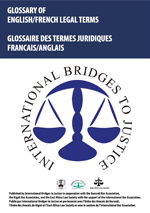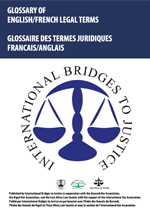
In light of the growing East Africa integration, International Bridges to Justice has embarked on a new project which aims at institutionalizing best defender practices among East African lawyers. IBJ is teaming up with the East Africa Law Society (EALS), the premier regional bar association, to develop an East Africa Legal Defense Manual that will help lawyers improve their skills and knowledge in the area of criminal law and defense. The EALS brings together over 7000 lawyers from the six national bar associations of the East Africa Community (which includes Kenya, Tanzania, Uganda, Rwanda and Burundi) and is therefore in a unique position to promote the dissemination of best defender practices across the East Africa legal community. With the manual, we hope to raise criminal defense lawyers’ professional status and equip them with practical skills to improve their credentials in criminal defense and ultimately become better advocates for the rights of of East African people. Integration among the East African nations has officially started with the establishment of the East Africa Community which promotes cross border integration on multiple levels including economics, politics and legal development. Therefore, this cooperation strives to enhance the progress already made by accelerating the harmonization of legal practices across the region and facilitating the transition to techniques of the adversarial system in Burundi and Rwanda, where IBJ has vibrant criminal defender programs. The manual will provide a practical and useful tool for all criminal defense lawyers in the region.
The content of the manual will be jointly developed by an international expert in the field of criminal defense and a team of local experts, nominated by the national Bar associations, who are best poised to make sure that cultural and country-specific issues are tackled in the manual. The manual will outline best practices and advocacy techniques with a focus on enhancing legal knowledge, practical defense skills – particularly trial skills, education on international norms and standards and some examples of their domestic implementation in all five countries. It will include practical tips about ways to mount a vigorous defense and include forms, checklists, and memos to help lawyers prepare and manage their cases.
It will be distributed through the national Bar Associations of the member countries and will be available online on the EALS website and IBJ’s Elearning platform. A French version will also be made available for Francophone lawyers in Rwanda and Burundi. We expect the first draft of the manual to be completed by April 2011.
IBJ is committed to contributing to the growing regional integration in other ways aswell. On November 19 and 20, the EALS is hosting its Annual General Meeting (AGM) in Bujumbura, Burundi. IBJ Rwanda and Burundi Fellows John Bosco and Astère and IBJ Burundian Legal Fellows Aline Nijimbere and Janvier Ncamatwi will participate in the lively discussions that will undoubtedly take place, strengthening the relationship with the East Africa legal community. Furthermore, IBJ has produced a glossary of English/French legal terms for the use of East Africa Francophone lawyers which will facilitate the integration of Rwanda and Burundi into the Anglophone East Africa Community. We are hoping to distribute copies of the glossary at the EALS AGM.
Furthermore, this cooperation is an excellent opportunity for IBJ to establish a base to promote access to legal counsel and human rights across East African countries. With this project we have laid the first foundations for a possible East Africa Defender Resource Hub which will support – both at the national and regional level – criminal defender trainings as well as the implementation of coordinated answers to the challenges of the criminal justice system throughout East Africa. This way, we will reduce the prevalence of torture in pretrial detention and help the accused in East Africa. Therefore, we are very excited to kickstart the development of the manual and future cooperation in East Africa and thank the International Bar Association for their support.
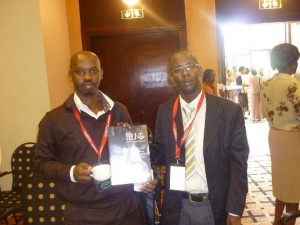
Above: John Bosco (left), IBJ Rwanda Fellow and Astère (right), IBJ Burundi Fellow at the EALS 2009 AGM where the foundations for cooperation between the EALS and IBJ were laid
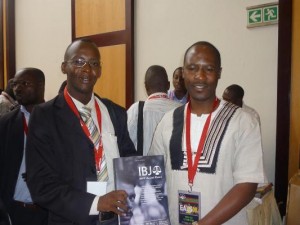
Above: Astère (left) and Bruce Kyerere, the Uganda Law Society President at the 2009 EALS AGM (Photo by John Bosco Bugingo)
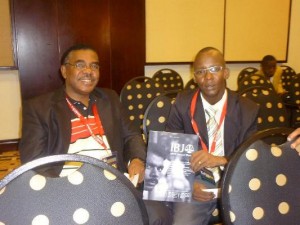
Above: Astère (right) with Dr. Fauz Twaib, the Tanzania Law Society President at the 2009 EALS AGM (Photo by John Bosco Bugingo)
